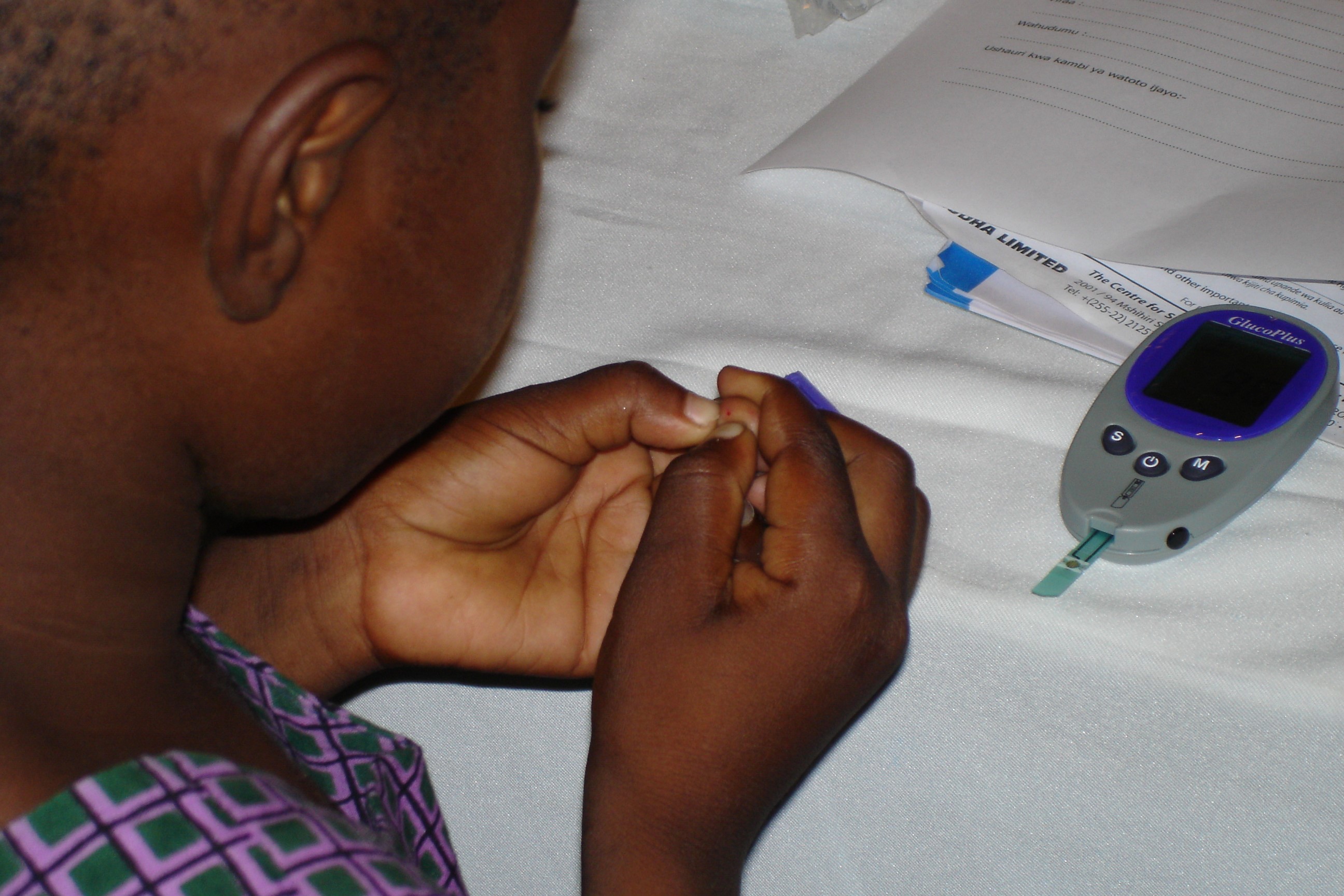Research Articles
-
Resources
Research Articles

Maximizing researcher–policymaker engagement in global public health
Abstract
A common misconception that prevails within some research communities postulates that research results 'speak for themselves' and are thus sufficient to influence policy. Yet, high-fidelity uptake of research is rarely a passive process; more often, researchers need to actively engage with policymakers. This process of policy engagement strives towards producing robust science that contributes to the betterment of our societies-but it is a process for which many researchers are not adequately trained. If publicly funded research fails to influence policy, many would regard it as falling short of fulfilling its potential value to society. Herein, we provide a framework for research-policymaker engagement, framed around the questions of why, on what, with whom, when, where and how clinical and public-health researchers can and should undertake engagement with policymakers. The views presented in this Perspective are a synthesis of the diverse, collective experience of the authors across global health contexts, supported by real-world illustrative case studies. We provide tangible recommendations for researchers, funders and policymakers to facilitate bridging the gap between evidence and policy.
© 2025. Springer Nature America, Inc.
Authors: J Jaime Miranda, David Beran, Rachel Nugent, Francisco Diez-Canseco, Jennifer L Sargent, Nyovani Madise, Branwen J Hennig, M Michelle Jimenez, Helena Legido-Quigley, Walter Mendoza, David Peiris, Camila Corvalan, Kent Buse
Nov 10, 2025

L’insuline, inaccessible pour beaucoup
Découverte au début du XXe siècle, l’insuline a révolutionné la prise en charge du diabète, transformant une maladie mortelle en maladie chronique. Mais au niveau mondial, un très grand nombre de patient·es n’a pas accès à ce médicament essentiel. La balle est dans le camp des gouvernements, expliquent les spécialistes Stéphane Besançon et David Beran.
Authors: David Beran, Stéphane Besançon
Oct 30, 2025

Improving type 1 diabetes care globally: the importance of medical education
Education is central for diabetes care and healthcare professionals should have the skills to educate people living with type 1 diabetes and their carers. This comment in The Lancet Diabetes and Endocrinology explores different training models for type 1 diabetes education through the lenses of educational theory.
Authors: Brynn E. Marks, Jaisree R lyer, Steven James, Valla Tantayotai, Carine de Beaufort
Sep 16, 2025

Why insulin, crucial in the fight against diabetes, remains inaccessible to millions of patients
Over a century after its discovery, insulin remains out of reach for millions. Published in The Conversation France, the piece explores how market concentration, policy inertia, and structural barriers continue to limit access. More than a diabetes issue, it reflects broader obstacles to essential medicine access.
Authors: David Beran, Stéphane Besançon
Aug 29, 2025

Rethinking and redefining the definitions and how we measure availability and affordability of medicines and technologies for non-communicable diseases
Non-communicable diseases (NCDs) — such as cancer, cardiovascular disease, diabetes, and chronic respiratory conditions — account for 74% of global deaths (1). While prevention is critical, ensuring access to essential medicines and technologies remains a major challenge. The Sustainable Development Goals (SDGs) emphasize both availability and affordability as key to achieving universal health coverage (UHC) (2). However, defining and measuring these concepts remains complex. Studies have shown the importance of looking at availability and affordability together, as both factors must be combined for people to access the medicines and technologies they need (3). Drawing from other sectors like food and housing, it is clear that availability without affordability still limits access. As NCD burdens grow, there is an urgent need to rethink and redefine how we understand and measure access to medicines and technologies.
(1)World Health Organization. Non communicable diseases geneva: world health organization. 2025 (2)World Health Organization. Monitoring health for the SDGs Geneva: World Health Organization. 2024 (3)Ewen M, Joosse H-J, Beran D, et al. Insulin prices, availability and affordability in 13 low-income and middle-income countries. BMJ Glob Health 2019; 4
Authors: Céline Mettraux, Andrew Gilmoor, Margaret Ewen, Stéphane Besançon, Marina Giachino, Joanna-Laurson Doube, Molly Lepeska, Cécile Macé, Christophe Perrin, Janeth Tenorio Mucha, Rosalind Turkie, David Beran
Aug 4, 2025

The need for a type 1 diabetes scorecard
As the global burden of type 1 diabetes continues to rise, disparities in access to care, insulin, and monitoring technologies remain a critical challenge—particularly in low- and middle-income countries. Strengthening data systems and standardised outcome tracking is essential to drive equitable, evidence-based interventions. This article examines the WHO’s Global Diabetes Compact and proposes a multidimensional scorecard to integrate clinical, patient-reported, and system-level indicators—offering a robust framework for monitoring progress and informing global diabetes policy and care.
Authors: Carine de Beaufort, David Beran, Sana Ajmal, Kaushik Ramaiya, Jessica Hanae Zafra-Tanaka, Mark Atkinson
Apr 7, 2025

Type 1 diabetes screening: need for ethical, equity, and health systems perspective
In October 2024, the ICD-10 codes were updated to include presymptomatic stages of type 1 diabetes, prompting recommendations for population screening. The use of teplizumab to delay progression to clinical diabetes offers new possibilities, but raises concerns about medicalizing early stages, psychological impacts, access to treatment, and healthcare equity. This article explores the challenges of integrating population screening and disease-modifying therapies into clinical practice, considering ethical, financial, and health system factors.
Authors: David Beran, Aude Bandini, Emanuele Bosi, Claudia Boettcher, Marie-Anne Burckhard, Matthieu Colange, Nina Tousch, Valérie Schwitzgebel
Mar 1, 2025

Lack of access to insulin: undermining the Rights of the Child
The 100th anniversary of the Rights of the Child, 2 years after the centenary of insulin’s first use, is an opportunity to highlight the issue of lack of access to insulin and diabetes care and catalyse a global rights-based response to help address it.
authors: Olivia Heller, Olivier Duperrex, Philip Jaffé, Jeffrey Goldhagen, Carol Abidha, Ann Skelton, Mikiko Otani, Yvon Heller, Jean-Dominique Vassali, David Beran
May 30, 2024

The Lancet Diabetes & Endocrinology Commission on type 1 diabetes: From research to policy: still a long way to go
Critical issues in diabetes and endocrinology research include the prevalence of research waste and the lack of impact from transformative studies that fail to reach policymakers. Many medical studies are poorly designed or reported, which limits their clinical and public health relevance. Even high-quality research, such as systematic reviews, can be misleading when based on flawed data. Despite efforts to improve research transparency, the translation of research into policy remains limited, particularly for conditions like diabetes, which are often deprioritized by policymakers. This article highlights the need for stronger engagement between researchers and policymakers, as well as greater accessibility of research findings to ensure their influence on health policies.
Author: The Lancet Diabetes & Endocrinology
Jan 1, 2024

The Lancet Diabetes & Endocrinology Commission on type 1 diabetes: looking back to move forward
Type 1 diabetes care has evolved significantly since the discovery of insulin in 1921, improving life expectancy, particularly in high-income countries. However, global disparities in access to insulin and care persist, especially in low- and middle-income countries, where limited resources result in poorer outcomes. Despite global initiatives like the WHO’s Global Diabetes Compact, a comprehensive, person-centered approach for type 1 diabetes is still lacking. This article examines these challenges and introduces a new Lancet Diabetes & Endocrinology Commission aimed at developing a global plan to improve equitable care and quality of life for people with type 1 diabetes worldwide.
Authors: David Beran, Marta Koch, Sana Ajmal, Carine de Beaufort, Kaushik Ramaiya, Jessica Hanae Zafra-Tanaka, et al.
Nov 13, 2023

Accès à l'insuline : le(s) rôle(s) des gouvernements
Access to insulin is complex requiring global and national factors to be considered. The World Health Organization (WHO) proposes a framework to disentangle this. This includes: research & development and innovation; manufacturing; regulatory aspects; selection, pricing and reimbursement; procurement and supply; prescribing; dispensing; and use. For each of these, governments can play an essential role in guaranteeing an adequate allocation of resources as well as ensuring that diabetes care is properly structured within health systems. Concerted action is needed to guarantee access to affordable insulin and care and to ensure that the various needs of people with diabetes are included in government programs and interventions. Governments also have a role to play in being a counterweight to the private sector, working closely to establish networks and possibilities for exchanges between different actors including the civil society.
Authors: David Beran, Stéphane Besançon
Jun 1, 2023

Pénuries de médicaments : augmenter les prix pénalisera les pays les plus pauvres
This joint op-ed, spearheaded by Pauline Londeix and Jérôme Martin of OTMeds, along with Stéphane Besançon from the NGO Santé Diabète, was published in the print edition of Libération and is also available online. It argues that increasing drug prices is not a suitable solution to the structural shortages of these products and will, in fact, have harmful effects on global access to treatment. This price hike is being advocated by pharmaceutical companies and supported by many political leaders.
Authors: David Beran, Stéphane Besançon, Charlotte Brives, Sophie Crozier
May 5, 2023

Prequalification of insulin: what is missing?
In 2019, the World Health Organization (WHO) launched a project to make insulin more affordable and accessible by encouraging more manufacturers to enter the market. With just a few companies controlling insulin production and driving up prices, this initiative could be a game-changer for people with diabetes. However, progress has been slower than anticipated. This article explores the challenges holding it back and highlights potential solutions that could make life-saving insulin available to millions of people worldwide.
Authors: David Beran, Marina Giachino, Christophe Perrin, Cécile Macé
Dec 1, 2022